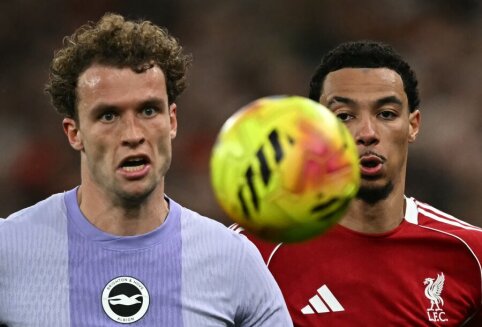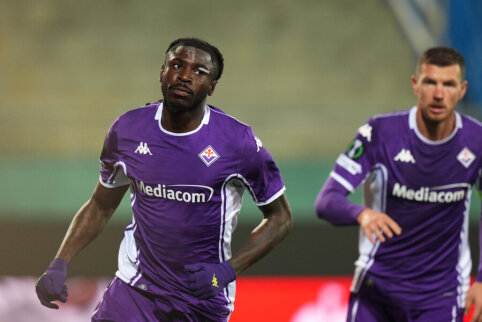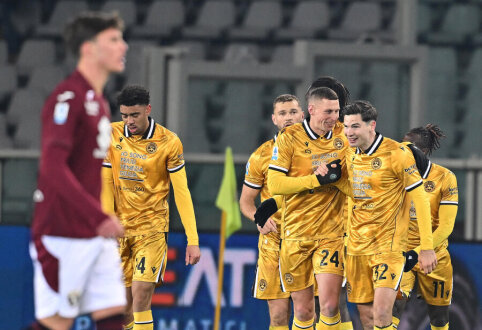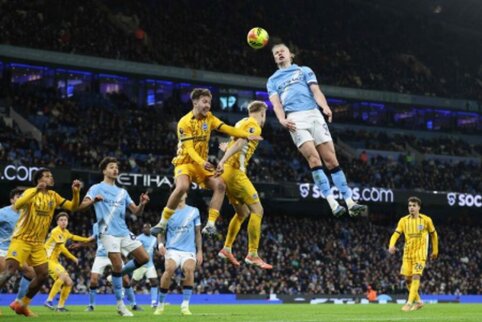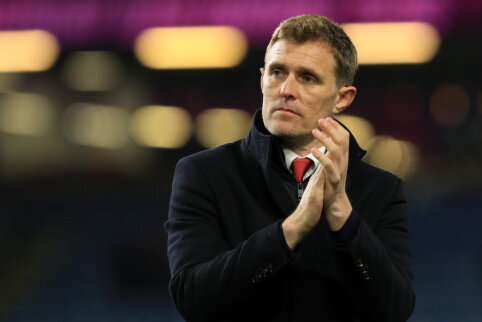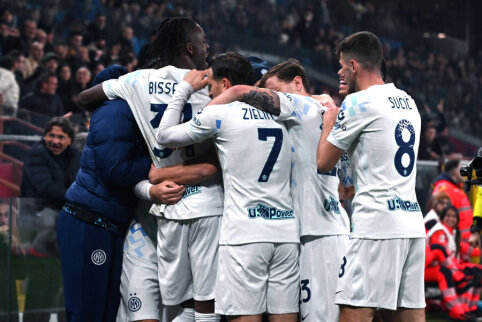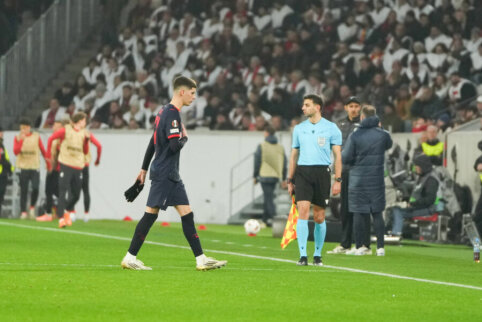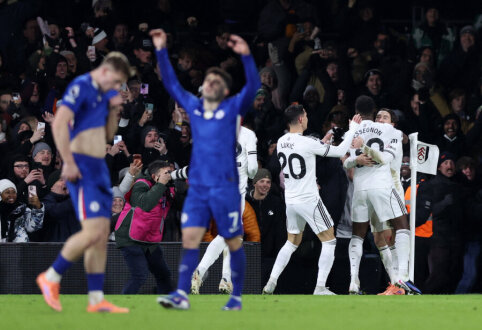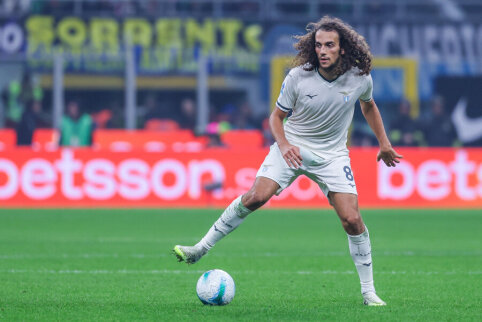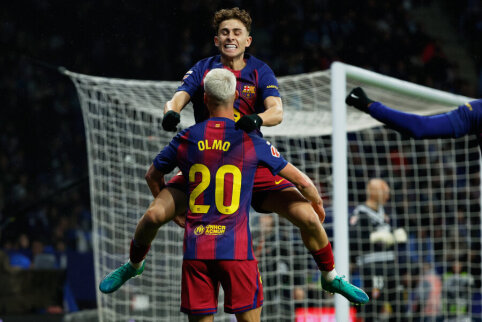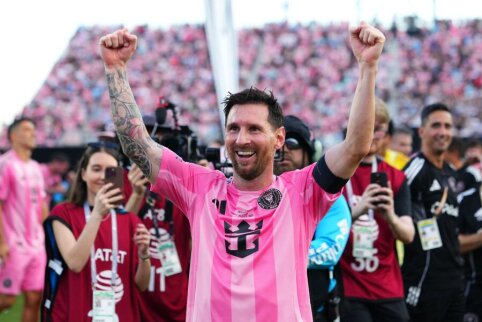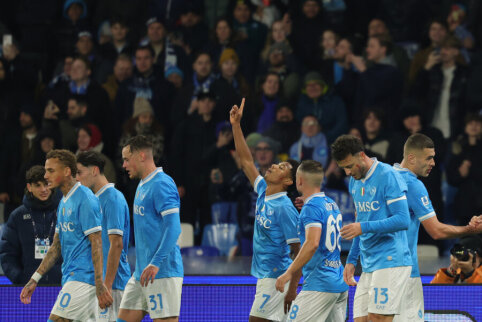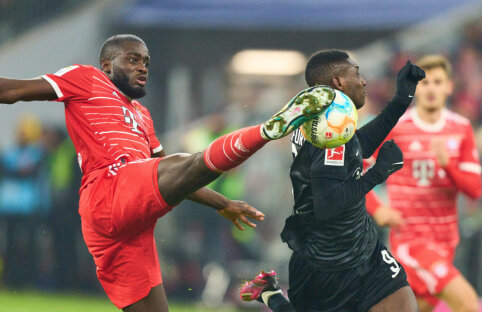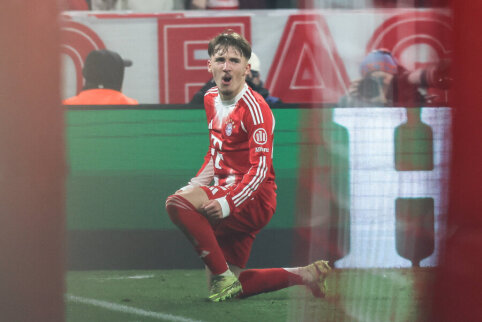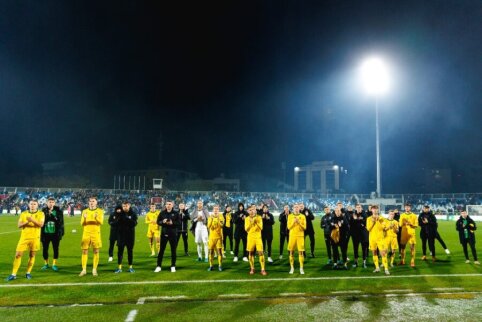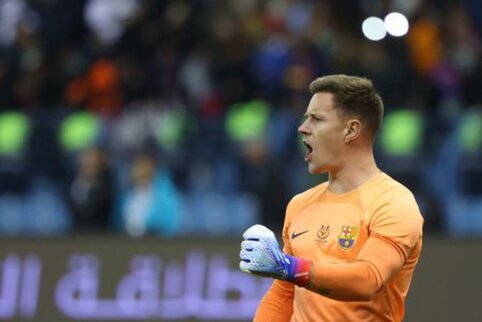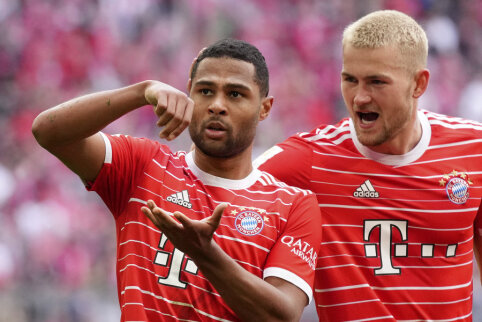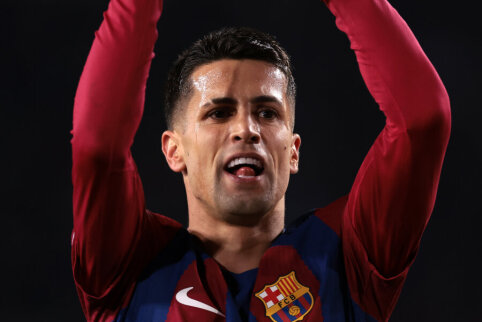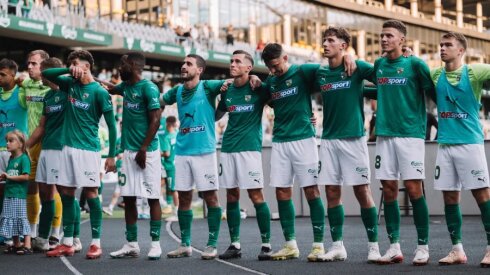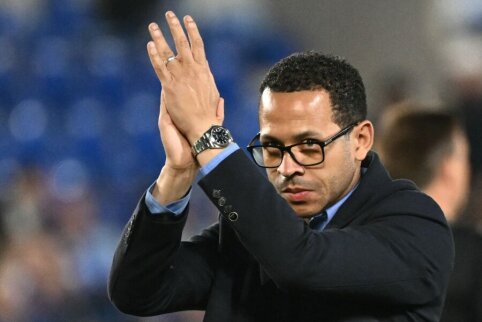 © EuroFootball.com
© EuroFootball.com
"The series of articles in "Tribūnas" about the past championships is continued with a text by webpage visitor Tomas (ronaldinho_10) about the unusual and tragically ended World Cup held in Brazil in 1950. Both the planned championships in 1942 and 1946 were canceled due to the darkest event that can happen to humanity - the devastating World War II. People forgot about football, they only cared about how to save their lives, so during this period, many talents in the world of football perished, possibly capable of becoming global football stars. The next World Cup took place 12 years later, after the last one in 1938 in France, and Brazil became the host. After the war, FIFA tried to quickly revive the tournament and initially planned to hold it in 1949, but there were no takers. At the FIFA congress held in July 1946 in Luxembourg, Brazilians were the only ones who proposed to host the 1950 World Cup, and all arguments were in their favor - the 4th World Cup was planned to be held in South America, as most of Europe was still recovering from World War II, and at that time Brazilians dominated South America, being multiple champions of this continent, football in this country had reached such a level that it was close to fanaticism. So FIFA did not wait and decided that Brazilians would host this impressive football carnival. At the same congress, it was decided that the World Cup trophy would now be called the Jules Rimet Cup, thus honoring Jules Rimet's 25 years of leadership at FIFA. By the way, interestingly, throughout World War II, the World Cup trophy was hidden under the bed of the World Cup champions, in a shoebox, hidden from the occupiers, by Italian FIFA vice president Ottorino Barassi. This World Cup was the first where British teams participated. After the England national team beat the European team 6-1 in 1947, it was considered one of the favorites in this championship. Some countries withdrew from the championship for various reasons. For example, the Indian national team refused to participate in the tournament because FIFA did not allow them to play barefoot, Germany and Japan did not participate due to occupation. All this led to a very strange group stage - two groups with 4 teams, one group with 3 teams, and in one group, only 2 national teams played. Group winners advanced to the final group, where the winner became the world champion. So the winner of their group was the Brazilian national team, which advanced to the final group by defeating Mexico 4-0, drawing 2-2 with Switzerland, and defeating the Yugoslavs 2-0. The winners of Group II were the Spaniards, who beat the United States 3-1, Chile 2-0, and England 1-0. The next group was made up of only 3 teams, so the Swedes had to beat the Italians 3-2 and play a draw with Paraguay. In Group 4 there were only 2 national teams, so in the only match, Uruguay beat Bolivia 8-0 and immediately entered the final group. This championship was the only one without a real final. In the final match, Brazil needed only a draw against Uruguay because they had beaten Sweden and Spain 7-1 and 6-1, respectively, while Uruguay had drawn with Spain and won 3-2 against the Swedish national team. Brazil's catastrophe, or the best and the defeated "Everyone has irreparable national catastrophes, such as Hiroshima. Our catastrophe, our Hiroshima, was the defeat to Uruguay in the 1950 World Cup," - said Nelson Rodriguez, a renowned Brazilian writer. Before the final, on July 15th, the headlines of the "Gazeta Le Sportiva" in San Paulo blinked: "Tomorrow we will become champions, tomorrow we will defeat Uruguay" and so on. The first two matches of the Brazilian national team in the final stage caused great euphoria in the country. Beating Sweden 7-1 and Spain 6-1. Brazilians played happily, enjoying the game. Even the editor of the Milan newspaper "Gazzetta Dello Sport" compared a Brazilian to Leonardo Da Vinci: "He too creates art with his feet on a huge canvas, on the Maracanã lawn." When the day of the final arrived, a Brazilian victory did not raise any doubts, the newspapers already called them world champions, as the Brazilian national team had enough points in the final stage for better-played matches. 173,850 ticket holders gathered for the final, and with journalists, officials, and guests, about 200,000 people watched the game - an absolute all-time record. Before the final, the Brazilian victory was guaranteed, one newspaper even printed a photo of the Brazilian national team with the caption - "Here are the world champions." Before the match, Rio de Janeiro mayor addressed the players: "You are the players who, in less than a few hours, Brazil will carry on their shoulders and call champions. You are the players who have no rivals on the entire hemisphere. You are the players who would defeat anyone in the world. You are the players that I already congratulate as winners." So the final began. The first half was played nervously and ended goalless. If you asked a Brazilian what his dream was, he would say to score a goal at the Maracanã in the World Cup final. However, only one Brazilian managed to do it - forward Friaca scored in the 46th minute, beating the Uruguayan goalkeeper and putting the Brazilian national team ahead. 1-0. The stadium was engulfed in mass psychosis, with chants of "goal!", "goal!" But all Brazilian hopes began to crumble like a house of cards when 66 minutes in, Juan Alberto Schiaffino equalized the score for Uruguay. Maracanã fell silent, and even though the score was 1-1, the Brazilians had enough to become champions. In the 79th minute, mass football euphoria turned into a massive hysteria when Uruguayan Alcides Ghiggia, after beating all Brazilian defenders, scored the winning goal. And at that moment, the football sanctuary fell silent as a graveyard. Years later, A.Ghiggia said, "Only three people in history have been able to silence Maracanã with a single move. These were Frank Sinatra, Pope John Paul II, and me." A.Ghiggia's goal was met with a deadly silence throughout the stadium. "That goal, one of the simplest goals, seemed to divide all of Brazil into two phases: before the goal and after the goal," wrote a sports journalist. Brazil lost, and the champions of the World Cup became Uruguayans. After the match, newspapers reported that three fans of the Uruguayan national team died of excitement after hearing the unexpected result on the radio, and a 58-year-old man in Rio de Janeiro collapsed in his chair at home. "When the players needed Maracanã the most - it was silent. You cannot trust yourself on the pitch, this lesson saddened us on the late July evening of 1950," wrote poet Chico Buarque. Living through that cruel afternoon, they said they would never be happy again... What happened on July 16, 1950, deserves a collective monument, just like an unknown soldier's grave. Such things unite nations because at that time all the people in the country experienced the same suffering, the same experiences. As the crowd left Maracanã, only one outbreak of violence was recorded - the granite bust of Rio de Janeiro's mayor, the one who "welcomed the champions," was toppled. This is the massive tragedy that Brazil experienced after losing the final to Uruguay. This was an event that will always remain in football history as a lesson that even the strongest football teams must always respect and appreciate their opponents and not crown themselves champions too early because, according to an old but very wise phrase, football is not played by names but by teams and people. This is what the 1950 World Cup in Brazil was like, a championship that will always remain in the memory of all football fans. Championship statistics 4 World Cup. Brazil, 1950 June 24 - July 16 Winner - Uruguay (2 titles) Number of participants - 13 Matches played - 22 Goals scored - 88 (4.0 per match) Number of spectators - 1,069,354! (48,607 per match) Top scorer - Ademir (Brazil) 9 goals. Participants: - England, Bolivia, Brazil, Chile, Spain, Italy, USA, Yugoslavia, Paraguay, Sweden, Switzerland, Mexico, Uruguay. Championship held in the cities of - Rio De Janeiro, São Paulo, Recife, Belo Horizonte, Porto Alegre, Curitiba. Stadiums - Maracanã, Eucaliptos, Durival De Brito, Sete De Setembro, Pacaembu, Ilha Do Retiro. Group I Brazil 4 - 0 Mexico Yugoslavia 3 - 0 Switzerland Yugoslavia 4 - 1 Mexico Brazil 2 - 2 Switzerland Brazil 2 - 0 Yugoslavia Switzerland 2 - 1 Mexico Standings: (Team, Pl., W., D., L., G., Pts.) 1. Brazil 3 2 1 0 8-2 5 2. Yugoslavia 3 2 0 1 7-3 4 3. Switzerland 3 1 1 1 4-6 3 4. Mexico 3 0 0 3 2-10 0 Group II Spain 3 - 1 USA England 2 - 0 Chile USA 1 - 0 England Spain 2 - 0 Chile Spain 1 - 0 England Chile 5 - 2 USA Standings: (Team, Pl., W., D., L., G., Pts.) 1. Spain 3 3 0 0 6-1 6 2. England 3 1 0 2 2-2 2 3. Chile 3 1 0 2 5-6 2 4. USA 3 1 0 2 4-8 2 Group III Sweden 3 - 2 Italy Sweden 2 - 2 Paraguay Italy 2 - 0 Paraguay Standings: (Team, Pl., W., D., L., G., Pts.) 1. Sweden 2 1 1 0 5-4 3 2. Italy 2 1 0 1 4-3 2 3. Paraguay 2 0 1 1 2-4 1 (India withdrew from participation) Group IV Uruguay 8 - 0 Bolivia Standings: (Team, Pl., W., D., L., G., Pts.) 1. Uruguay 1 1 0 0 8-0 2 2. Bolivia 1 0 0 1 0-8 0 (Scotland and Turkey withdrew from participation) Final group Brazil 7 - 1 Sweden Uruguay 2 - 2 Spain Brazil 6 - 1 Spain Uruguay 3 - 2 Sweden Sweden 3 - 1 Spain Standings: (Team, Pl., W., D., L., G., Pts.) 1. Uruguay 3 2 1 0 7-5 5 2. Brazil 3 2 0 1 14-4 4 3. Sweden 3 1 0 2 6-11 2 4. Spain 3 0 1 2 4-11 1 Final (unofficial) Rio De Janeiro "Estadio Maracana", July 16th 199,854 spectators Referee: George Reader (England) Brazil 1 - 2 Uruguay (First half 0 - 0) 47' [1 - 0] Albino Friaca 66' [1 - 1] Juan Alberto Schiaffino 79' [1 - 2] Alcides Edgardo Ghiggia Uruguay - Maspoli, M. Gonzalez, Tejera, Gambetta, Varela, Andrade, Ghiggia, Perez, Miguez, Schiaffino, Morán. Brazil - Barbosa, Augusto, Juvenal, Bauer, Danilo, Bigode, Friaca, Zizinho, Ademir, Jair, Chico. Top scorers: Ademir (Brazil) - 9 goals Juan Schiaffino (Uruguay) and Estanislao Basora (Spain) - 5 goals each. Chico (Brazil), Telmo Zarra (Spain), Omar Miguez (Uruguay), and Alcides Ghiggia (Uruguay) - 4 goals each Previous articles in the World Cup history series First article in the series: Uruguay 1930 Second article in the series: Italy 1934 Third article in the series: France 1938

